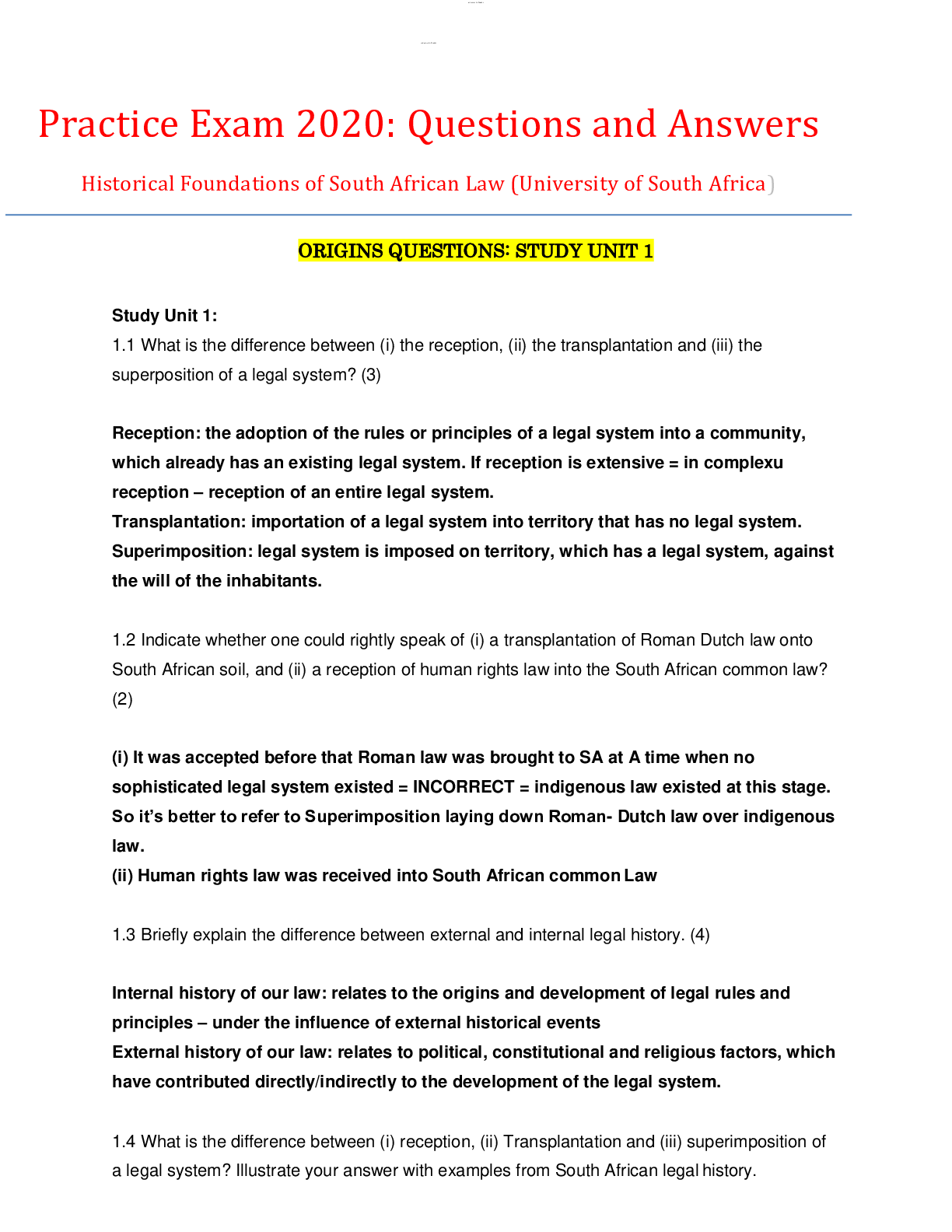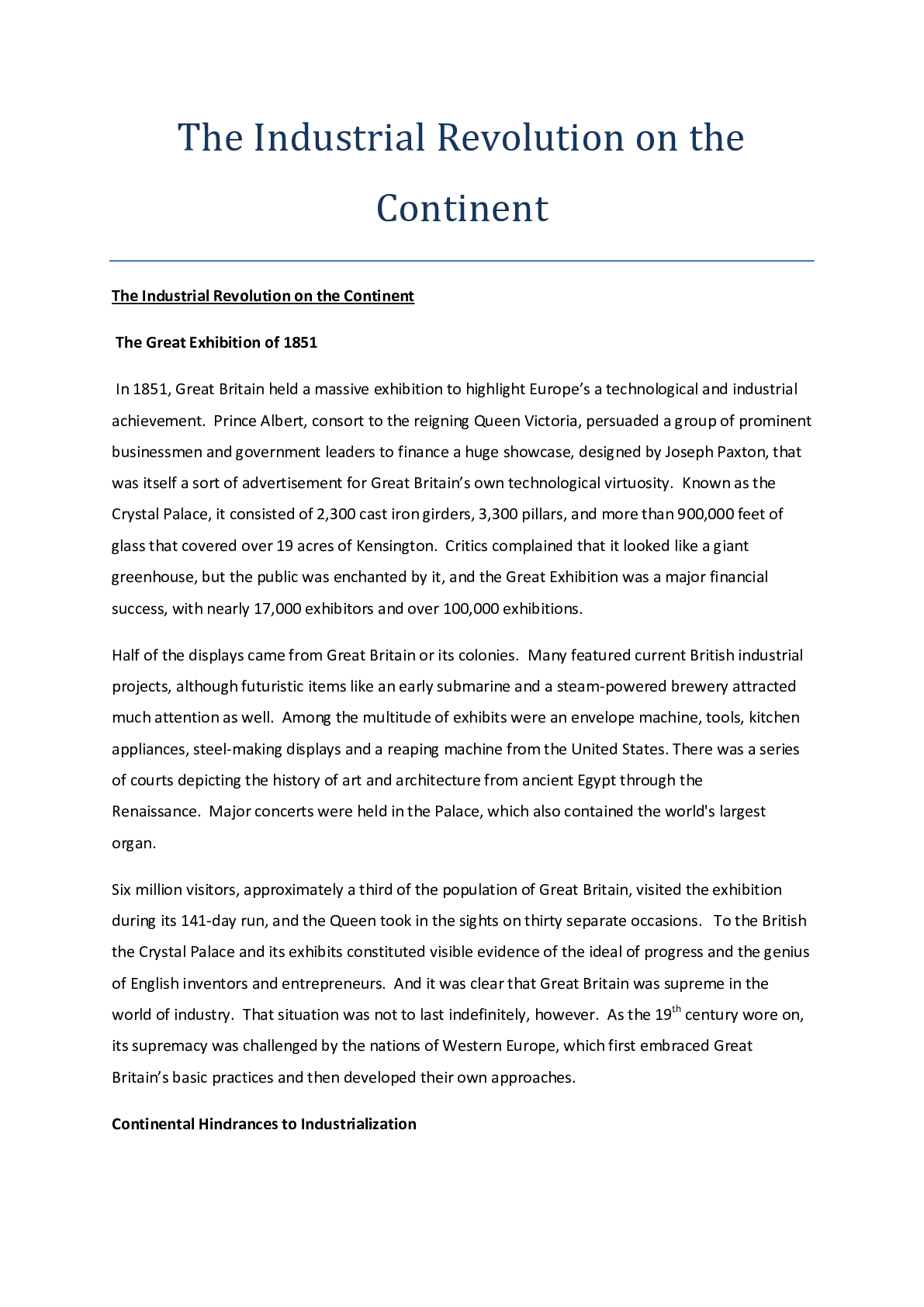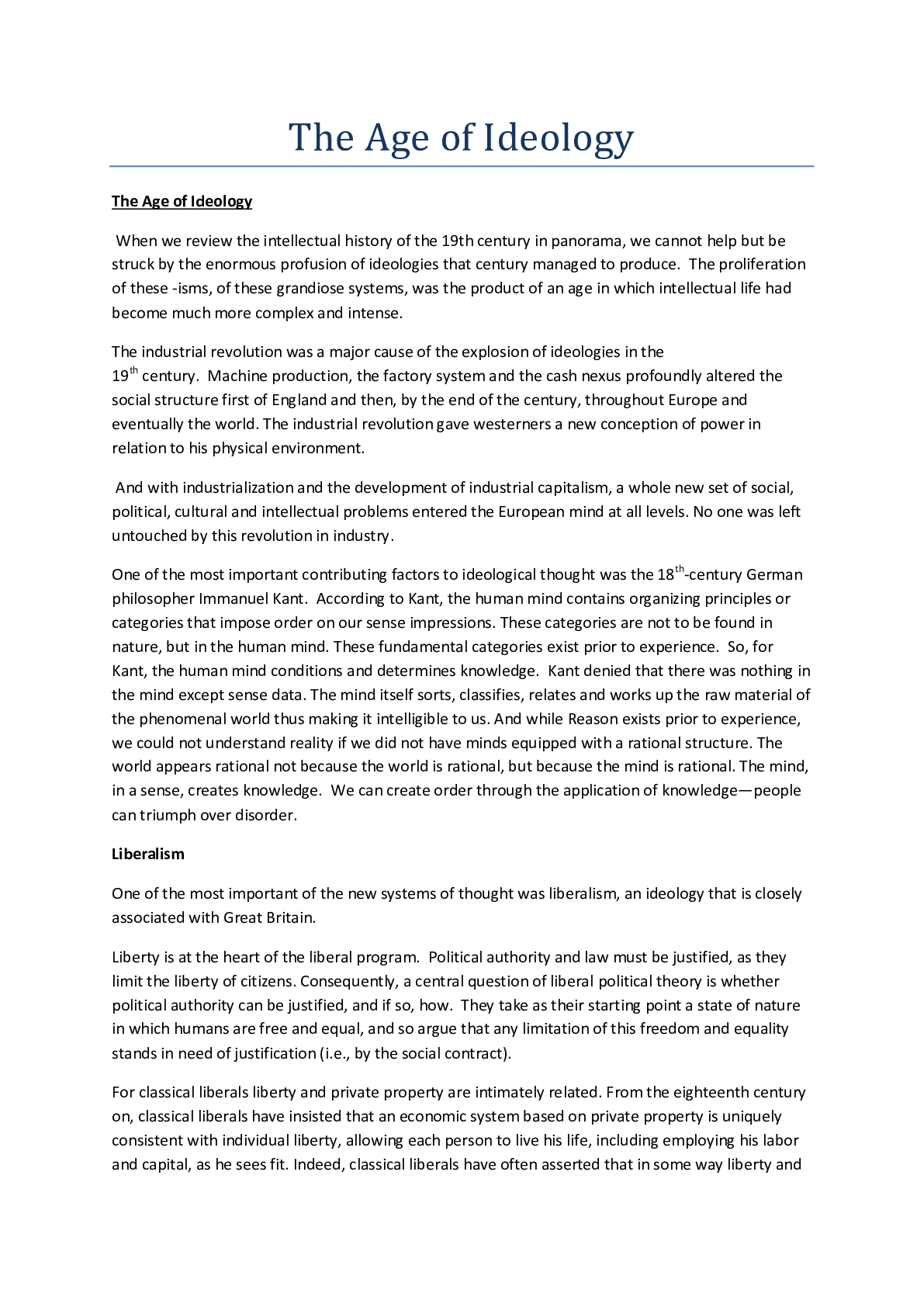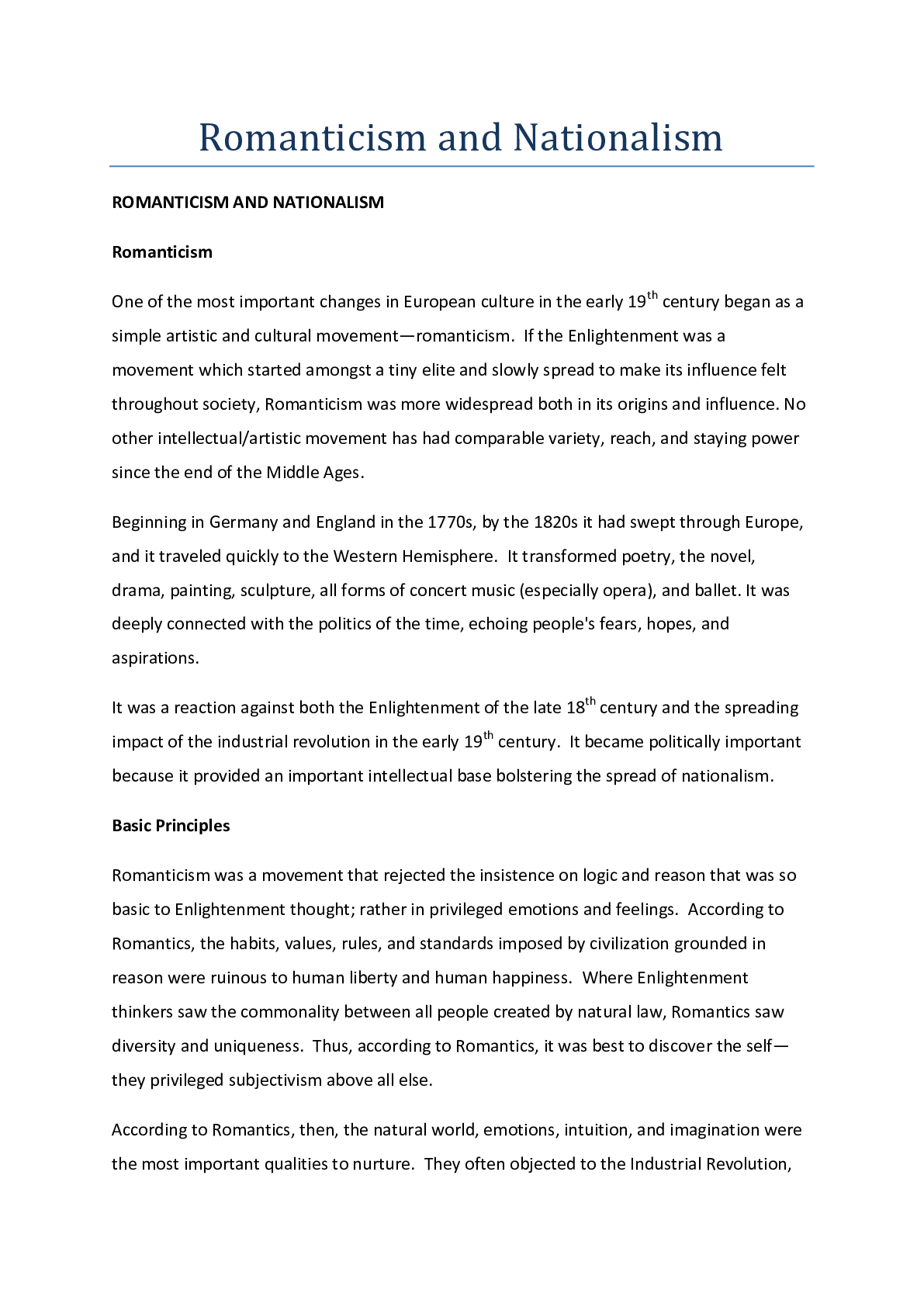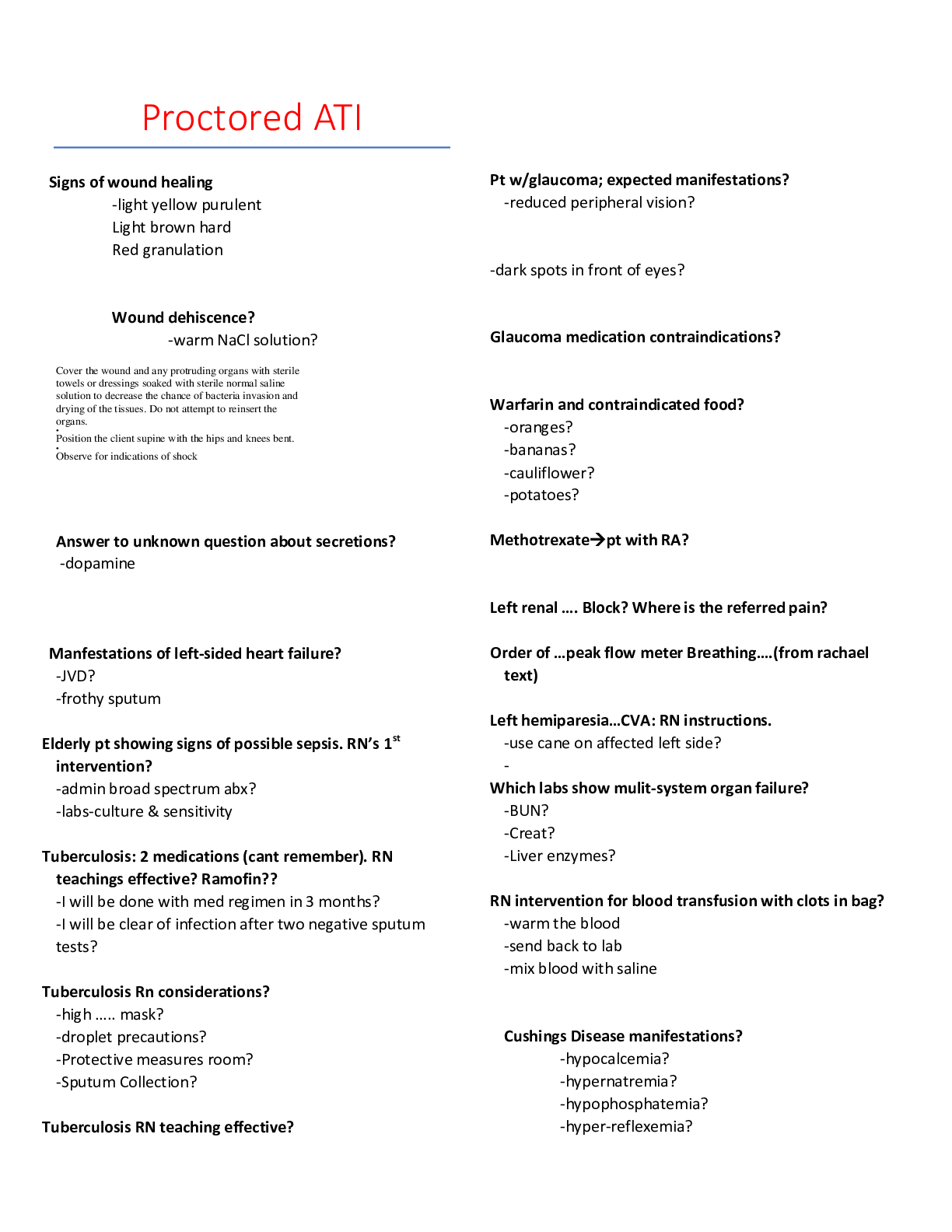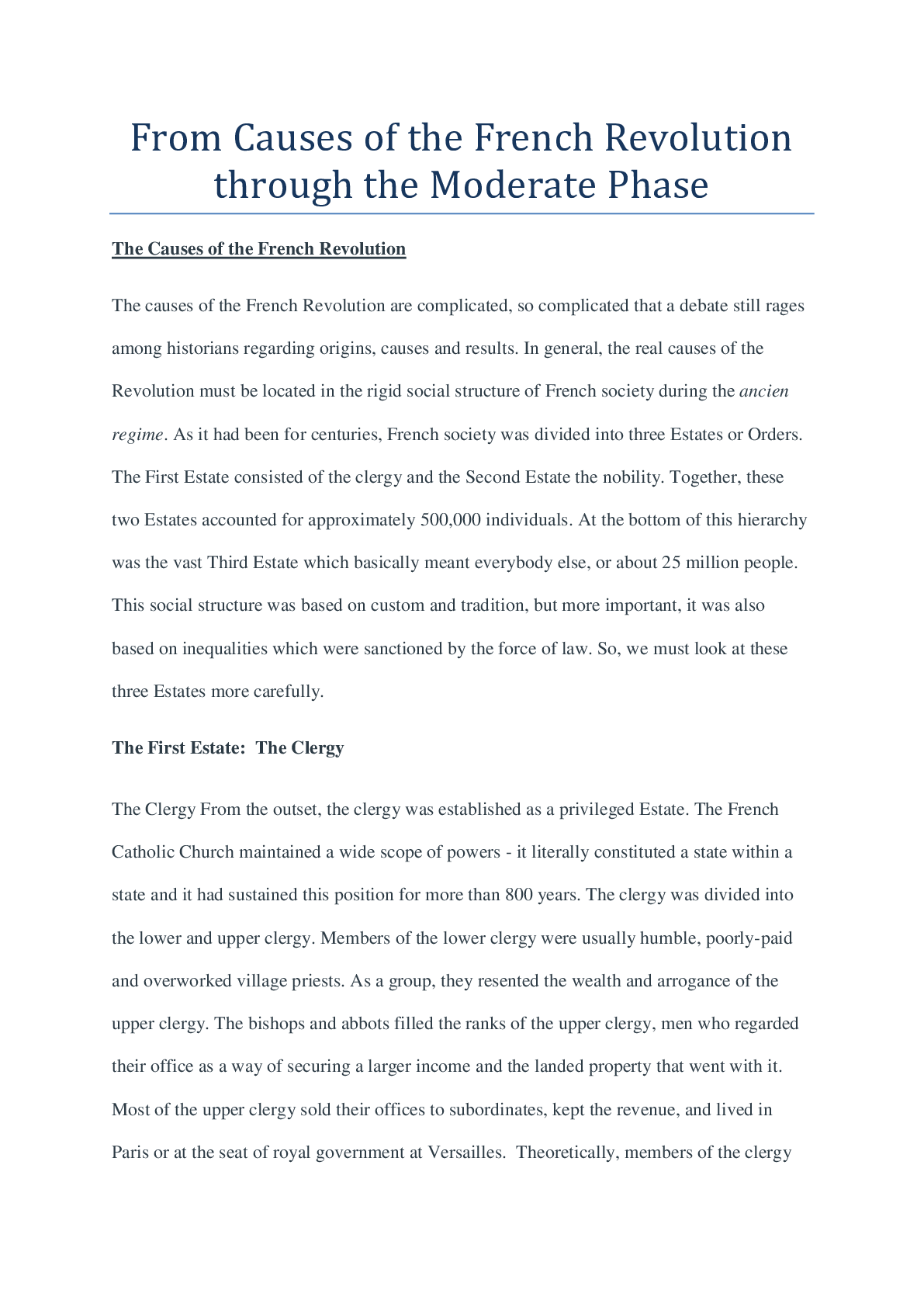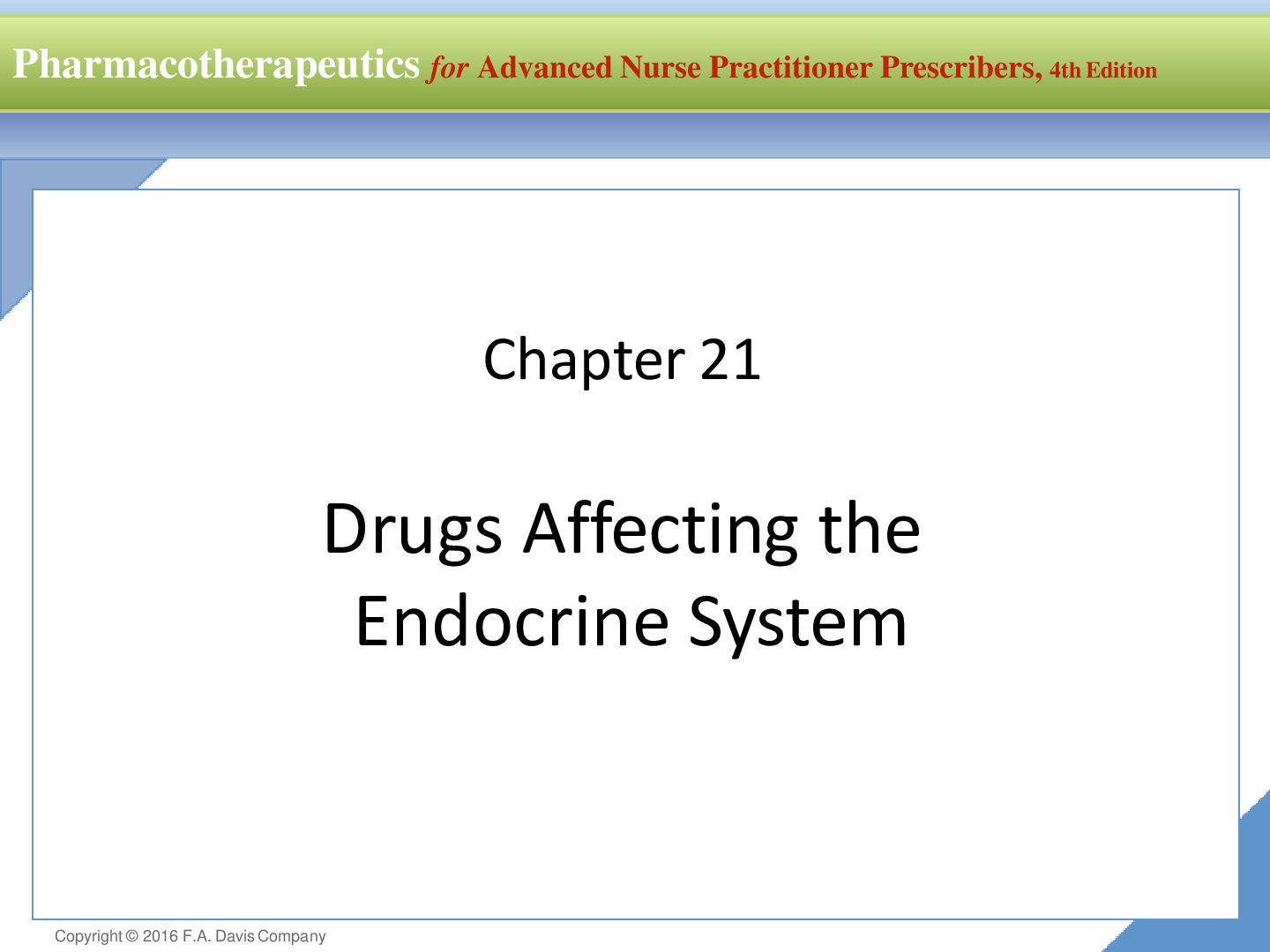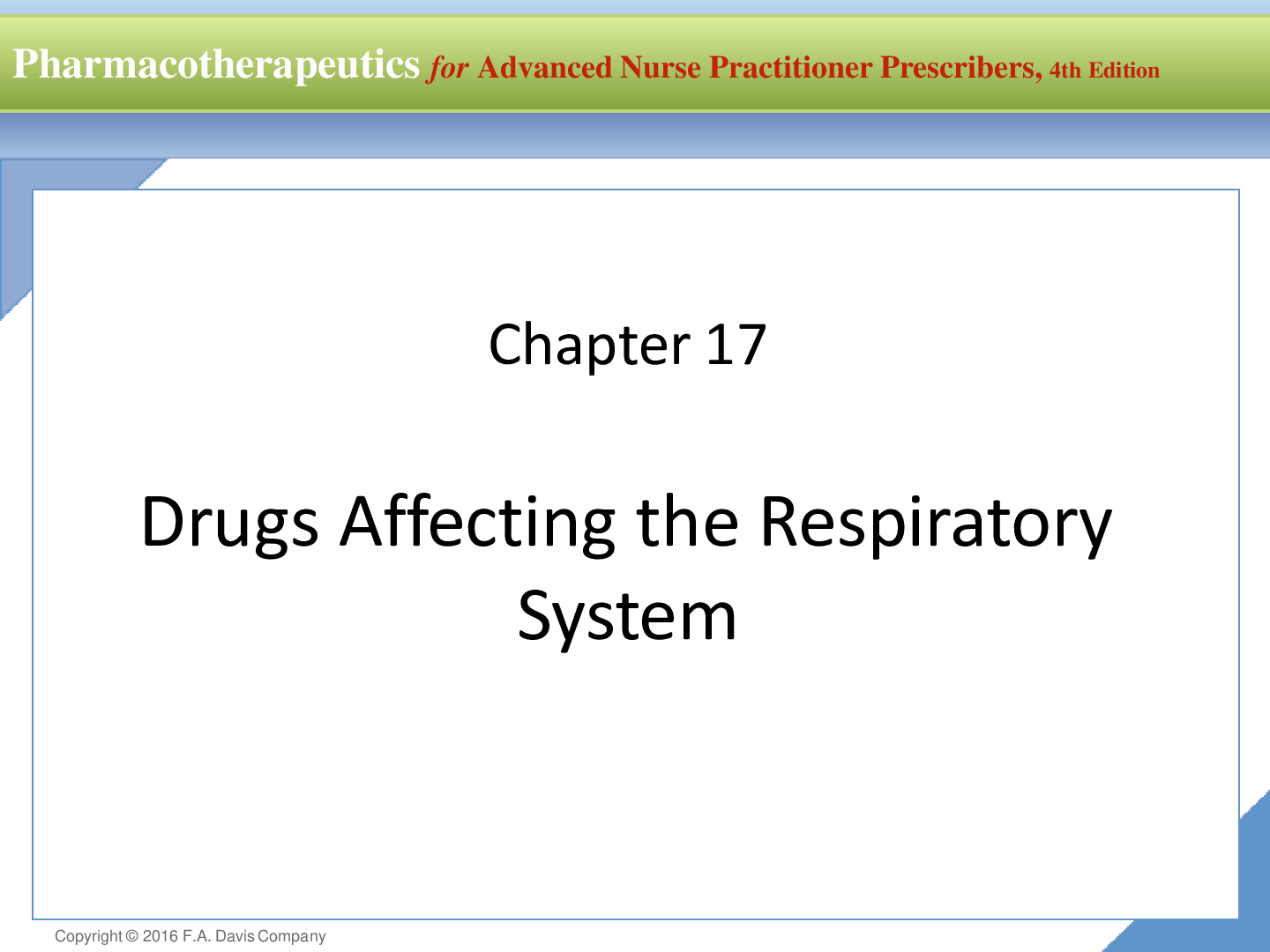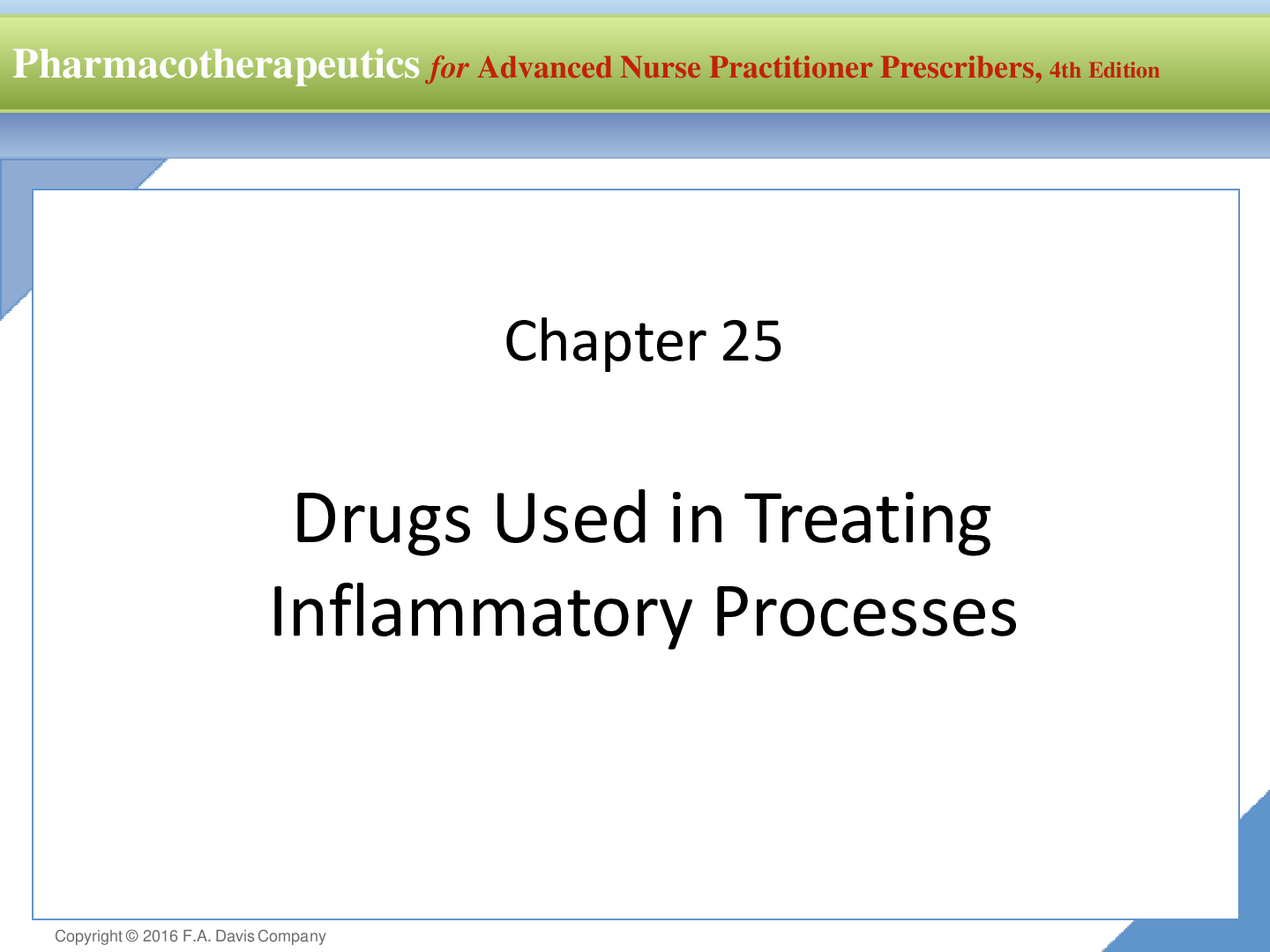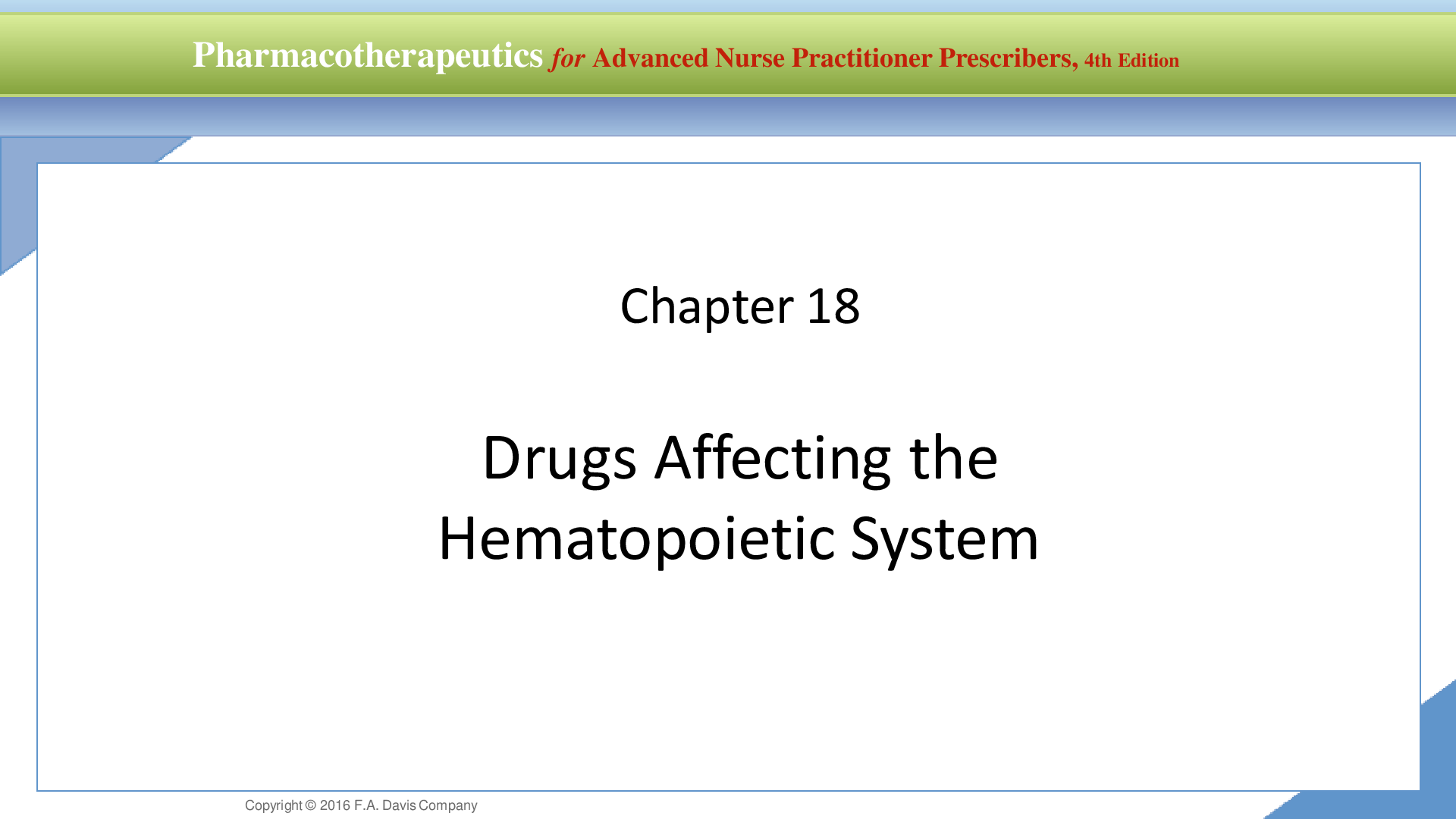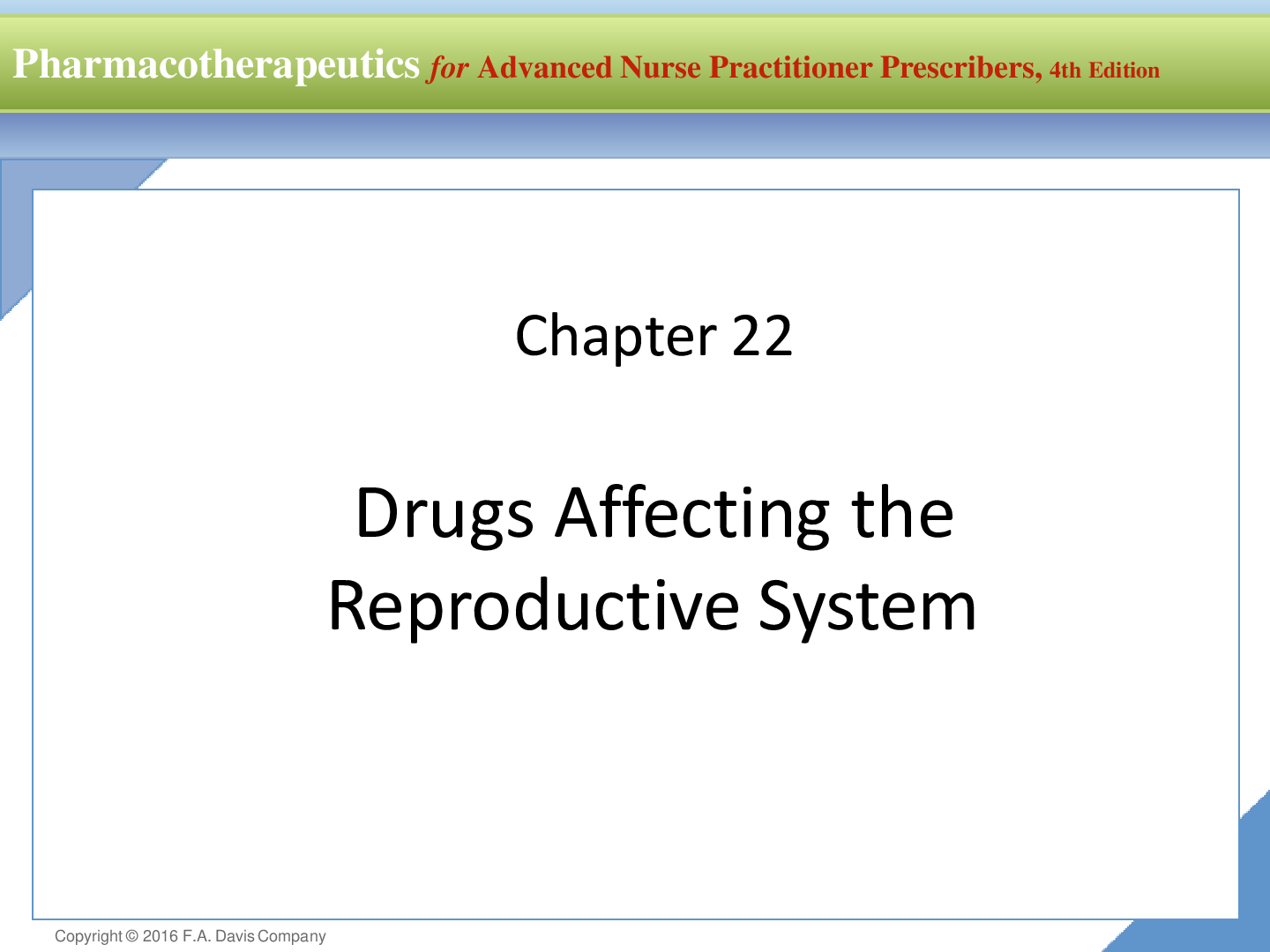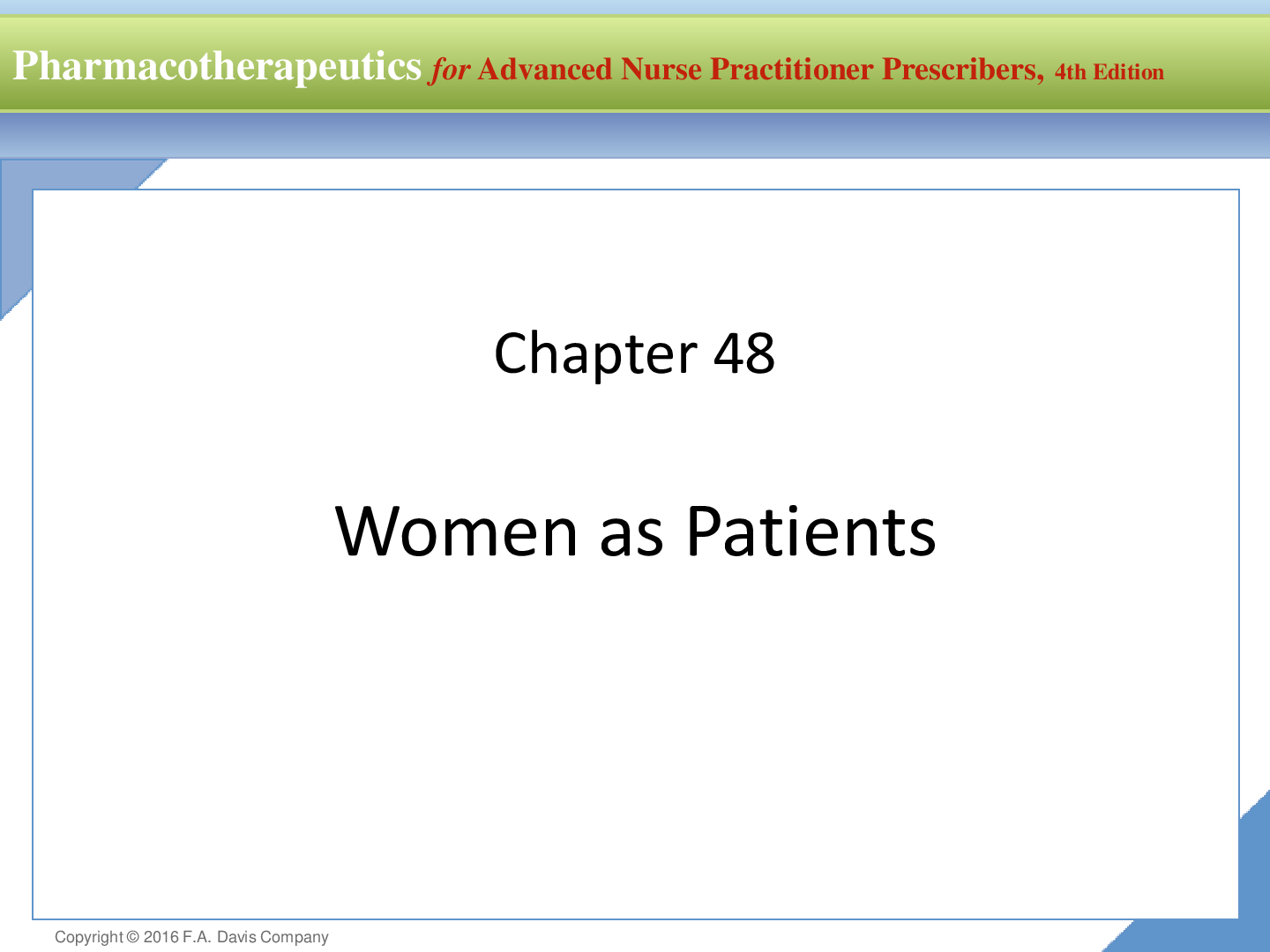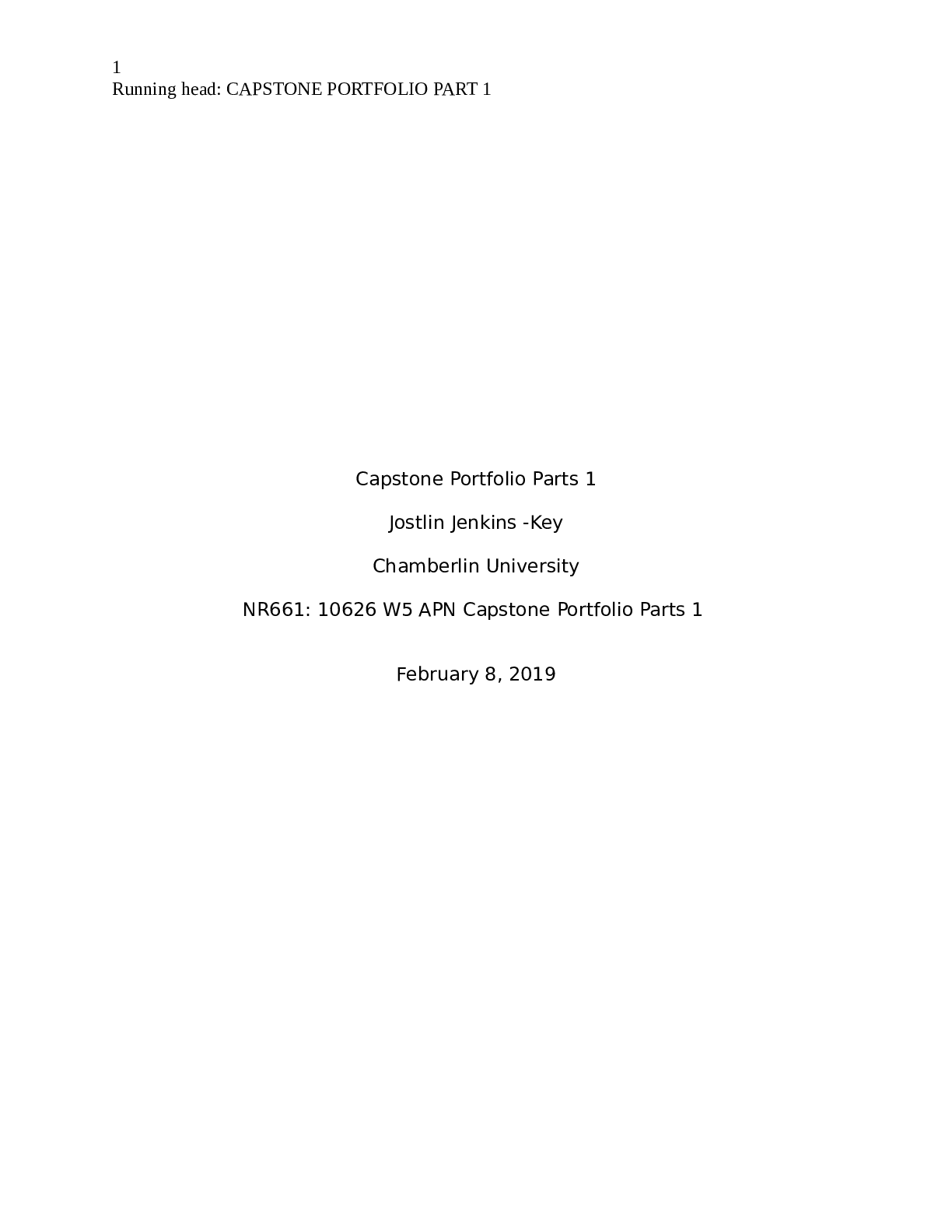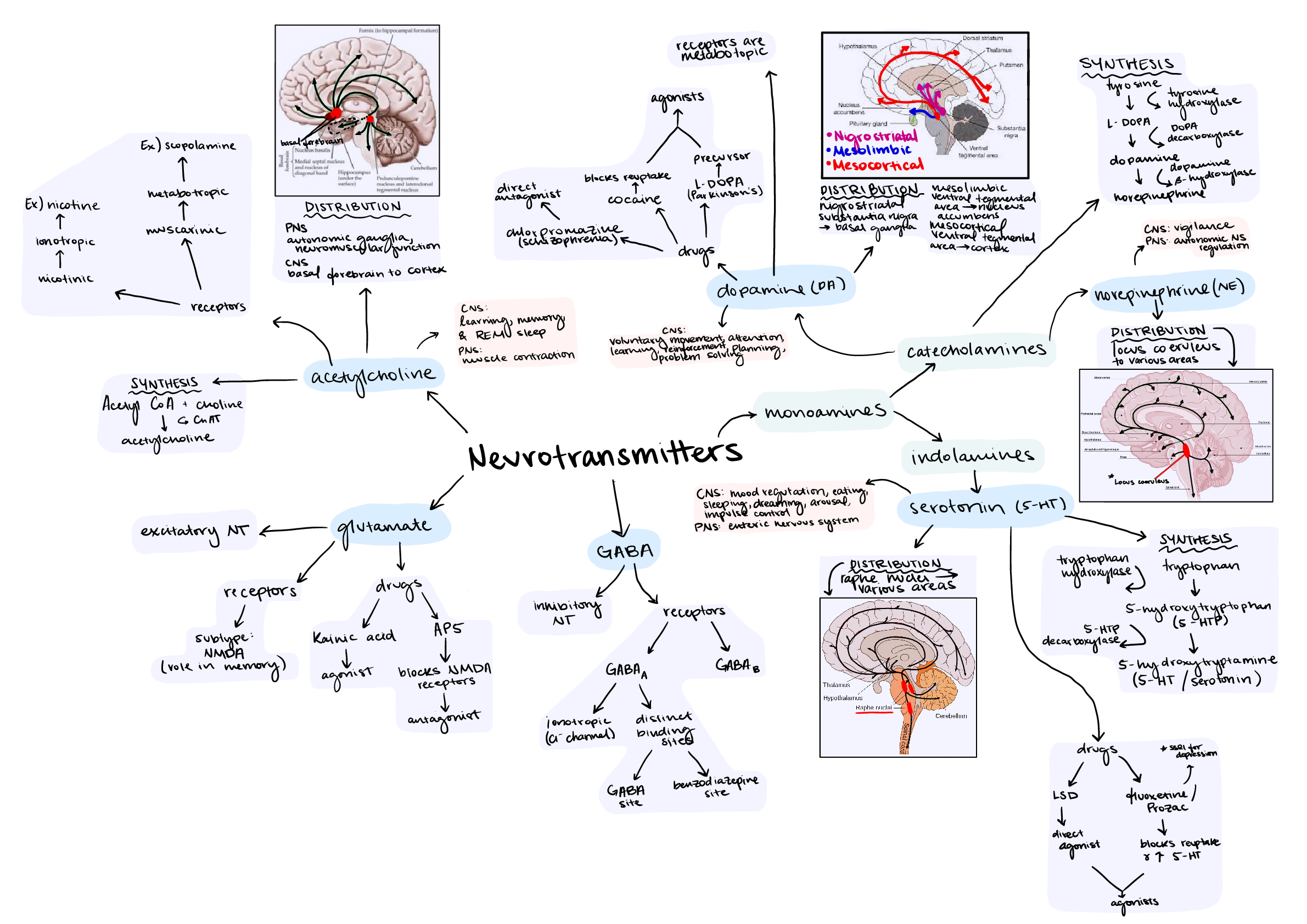History > Class Notes > The Crimean War and Western Europe: Study Notes (All)
The Crimean War and Western Europe: Study Notes
Document Content and Description Below
The Crimean War and Western Europe The Crimean War The Ottoman Empire As states in Europe grew even stronger, more nationalistic, and more centralized, they increasingly came into conflict over who... would have direct or indirect control over valuable areas that were, in many cases, far outside their traditional spheres of influence and not contiguous with their own holdings. One example of this was the Crimean War, which involved major European powers fighting over who would enjoy control over the territory and resources of the diminishing Ottoman Empire. Diplomatic Prelude In the early 1850s, Nicholas wanted to formalize an understanding with England about the position of Turkey and to prevent a rapprochement between England and France. The Russians would not tolerate the establishment of the English in Constantinople, but did not want to annex the city either. Temporary occupation by Russia might, however, be necessary to secure Russia's aim of finally getting secure outlet from the Black Sea. In discussions with Foreign Minister Russell of Britain Russia suggested an independent Moldavia and Wallachia, a Serbia under Russian protection, and an independent Bulgaria. The English were to get Egypt and Crete. The Austrians could establish themselves on the Adriatic. Immediate Cause The Franco-Russian dispute over the holy places in Palestine was the immediate cause of the Crimean War. Meanwhile, the Vienna Conference, which was in session throughout the war, formulated a peace proposal: • European guarantee for a Russian protectorate over Moldavia and Wallachia and Serbia; • freedom of navigation on the Danube River; • revision of the Straits Convention of 1841 (this was an agreement that closed the Bosporus Straits to warships); • five-power (England, France, Prussia, Austria, and Russia) protection of Christians in Turkey instead of only by Russia Russia did not give in to this program until Austria sent an ultimatum and threatened war. Frederick William IV urged the new Tsar Alexander II (who had acceded to the throne in February of 1855) to accept. Lord Palmerston, the new Prime Minister of England (also in power since February of 1855) wanted a partial dismemberment of Russia. Napoleon III and Francis Joseph of Austria were not willing to go that far. The Tsar had been expecting an uprising of Christian subjects of the Porte, or even been willing to promote it, but he was dissuaded from doing so by his minister. The latter argued that it was contrary to the Russian policy of maintaining the Porte. Fallout from the Crimean War European diplomacy in the late 19th century was largely predicated on Russia and its response to its failure in the Crimean War. The major concerns were: • Russia’s desire to throw off the Black Sea restrictions and regain southern Bessarabia; • International management of friction with England and France over the disposition of Poland; • Dealing with repercussions over Russian expansion in the Far East and Central Asia; and • Intensified Russian interest in the control over the Balkans. Gorchakov, who was the Russian Foreign Minister throughout the reign of Alexander II, carried out an elegant diplomacy without substance. From 1856 until 1859 a kind of Franco-Russian friendship existed, although Alexander clearly mistrusted Napoleon III. Nation-Building in England, France, and Austria Of all the European nations, England had the most consistent success in reforming through non-violent means. The British Parliament was good at absorbing new groups and political positions into the existing political framework, thus obviating the need for violent revolt to bring about change. Under Gladstone, Parliament: • Introduced competitive examinations into the Civil Service to reduce the power of patronage in the military. • Abolished the purchase of rank in the military officer class. • Introduced the secret ballot. • Opened Oxford and Cambridge to students of all religious denominations. • Took responsibility for the British educational system away from churches and made the government responsible for running the nation’s elementary schools. • The Public Health Act of 1875, which put the British government in charge of supervising public sanitation. • The Artisans Dwelling Act of 1875, which made the British government an active participant in building houses for the poorer classes. One area under the control of the Austro-Hungarian Empire, the Balkans, came to be known as the “tinderbox” of Europe. By giving new privileges to one group within the empire, the settlement with the Maygars contributed to even higher levels of resentment and nationalist sentiment among the empire’s other, largely Slavic, ethnic groups. [Show More]
Last updated: 1 year ago
Preview 1 out of 11 pages
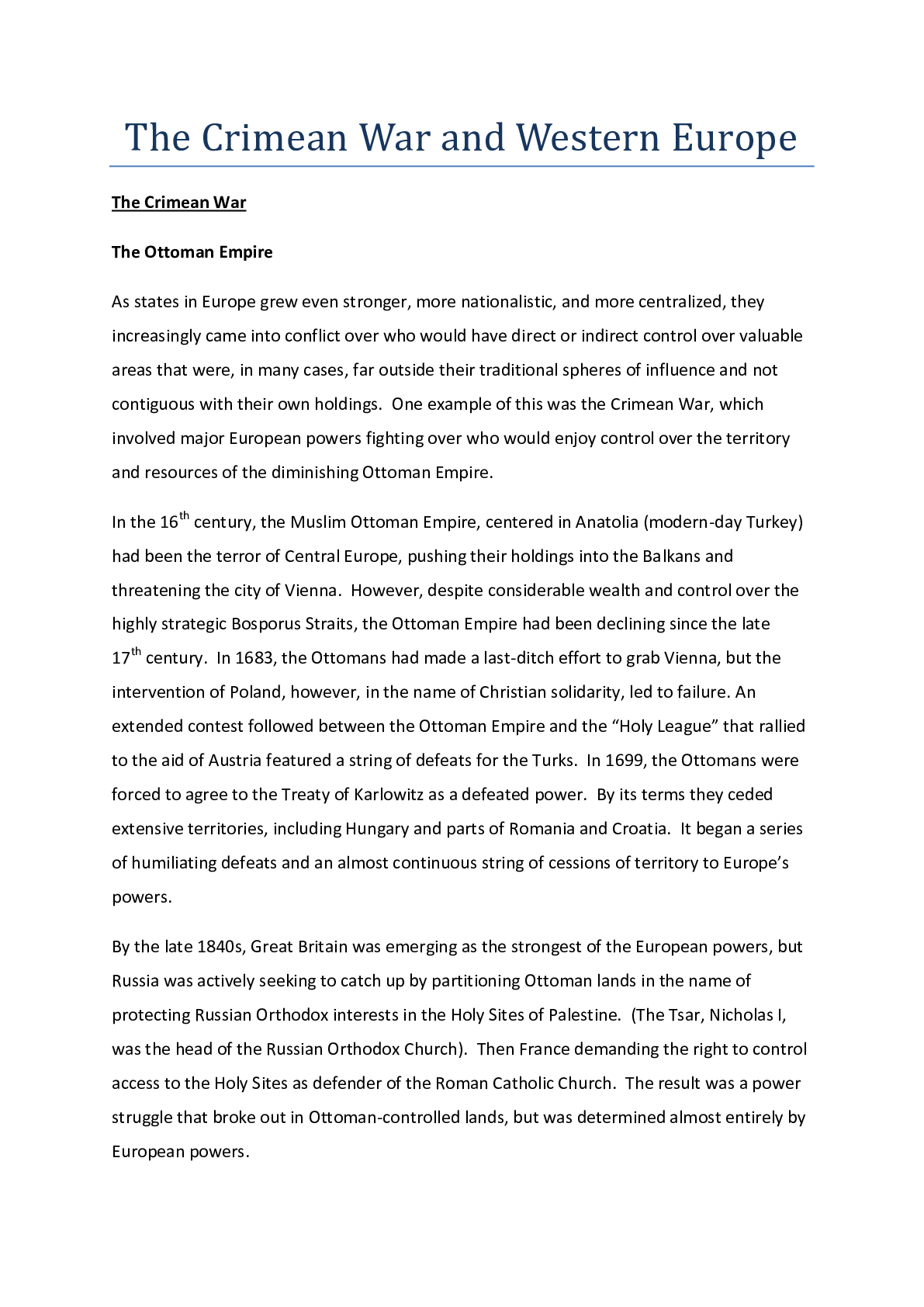
Reviews( 0 )
Document information
Connected school, study & course
About the document
Uploaded On
Jul 11, 2020
Number of pages
11
Written in
Additional information
This document has been written for:
Uploaded
Jul 11, 2020
Downloads
0
Views
101







